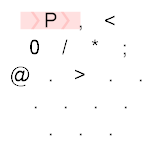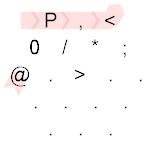44
3
Full width text is text that has a space after every character, including the last one. For instance, the first sentence of this question becomes:
F u l l w i d t h t e x t i s t e x t t h a t h a s a s p a c e a f t e r e v e r y c h a r a c t e r , i n c l u d i n g t h e l a s t o n e .
Write a program that takes a line in text from standard input and outputs it as full-width text to standard out.
Leaderboard
var QUESTION_ID=75979,OVERRIDE_USER=52353;function answersUrl(e){return"https://api.stackexchange.com/2.2/questions/"+QUESTION_ID+"/answers?page="+e+"&pagesize=100&order=desc&sort=creation&site=codegolf&filter="+ANSWER_FILTER}function commentUrl(e,s){return"https://api.stackexchange.com/2.2/answers/"+s.join(";")+"/comments?page="+e+"&pagesize=100&order=desc&sort=creation&site=codegolf&filter="+COMMENT_FILTER}function getAnswers(){jQuery.ajax({url:answersUrl(answer_page++),method:"get",dataType:"jsonp",crossDomain:!0,success:function(e){answers.push.apply(answers,e.items),answers_hash=[],answer_ids=[],e.items.forEach(function(e){e.comments=[];var s=+e.share_link.match(/\d+/);answer_ids.push(s),answers_hash[s]=e}),e.has_more||(more_answers=!1),comment_page=1,getComments()}})}function getComments(){jQuery.ajax({url:commentUrl(comment_page++,answer_ids),method:"get",dataType:"jsonp",crossDomain:!0,success:function(e){e.items.forEach(function(e){e.owner.user_id===OVERRIDE_USER&&answers_hash[e.post_id].comments.push(e)}),e.has_more?getComments():more_answers?getAnswers():process()}})}function getAuthorName(e){return e.owner.display_name}function process(){var e=[];answers.forEach(function(s){var r=s.body;s.comments.forEach(function(e){OVERRIDE_REG.test(e.body)&&(r="<h1>"+e.body.replace(OVERRIDE_REG,"")+"</h1>")});var a=r.match(SCORE_REG);a&&e.push({user:getAuthorName(s),size:+a[2],language:a[1],link:s.share_link})}),e.sort(function(e,s){var r=e.size,a=s.size;return r-a});var s={},r=1,a=null,n=1;e.forEach(function(e){e.size!=a&&(n=r),a=e.size,++r;var t=jQuery("#answer-template").html();t=t.replace("{{PLACE}}",n+".").replace("{{NAME}}",e.user).replace("{{LANGUAGE}}",e.language).replace("{{SIZE}}",e.size).replace("{{LINK}}",e.link),t=jQuery(t),jQuery("#answers").append(t);var o=e.language;/<a/.test(o)&&(o=jQuery(o).text()),s[o]=s[o]||{lang:e.language,user:e.user,size:e.size,link:e.link}});var t=[];for(var o in s)s.hasOwnProperty(o)&&t.push(s[o]);t.sort(function(e,s){return e.lang>s.lang?1:e.lang<s.lang?-1:0});for(var c=0;c<t.length;++c){var i=jQuery("#language-template").html(),o=t[c];i=i.replace("{{LANGUAGE}}",o.lang).replace("{{NAME}}",o.user).replace("{{SIZE}}",o.size).replace("{{LINK}}",o.link),i=jQuery(i),jQuery("#languages").append(i)}}var ANSWER_FILTER="!t)IWYnsLAZle2tQ3KqrVveCRJfxcRLe",COMMENT_FILTER="!)Q2B_A2kjfAiU78X(md6BoYk",answers=[],answers_hash,answer_ids,answer_page=1,more_answers=!0,comment_page;getAnswers();var SCORE_REG=/<h\d>\s*([^\n,]*[^\s,]),.*?(\d+)(?=[^\n\d<>]*(?:<(?:s>[^\n<>]*<\/s>|[^\n<>]+>)[^\n\d<>]*)*<\/h\d>)/,OVERRIDE_REG=/^Override\s*header:\s*/i;body{text-align:left!important}#answer-list,#language-list{padding:10px;width:290px;float:left}table thead{font-weight:700}table td{padding:5px}<script src="https://ajax.googleapis.com/ajax/libs/jquery/2.1.1/jquery.min.js"></script> <link rel="stylesheet" type="text/css" href="//cdn.sstatic.net/codegolf/all.css?v=83c949450c8b"> <div id="answer-list"> <h2>Leaderboard</h2> <table class="answer-list"> <thead> <tr><td></td><td>Author</td><td>Language</td><td>Size</td></tr></thead> <tbody id="answers"> </tbody> </table> </div><div id="language-list"> <h2>Winners by Language</h2> <table class="language-list"> <thead> <tr><td>Language</td><td>User</td><td>Score</td></tr></thead> <tbody id="languages"> </tbody> </table> </div><table style="display: none"> <tbody id="answer-template"> <tr><td>{{PLACE}}</td><td>{{NAME}}</td><td>{{LANGUAGE}}</td><td>{{SIZE}}</td><td><a href="{{LINK}}">Link</a></td></tr></tbody> </table> <table style="display: none"> <tbody id="language-template"> <tr><td>{{LANGUAGE}}</td><td>{{NAME}}</td><td>{{SIZE}}</td><td><a href="{{LINK}}">Link</a></td></tr></tbody> </table>

1So, if I understand, we can't take input as a function parameter (or output as a return value)? – Nathan Merrill – 2016-03-22T17:50:48.620
@NathanMerrill Yes, that's correct. – Jess Smith – 2016-03-22T17:51:29.860
6Usually you should allow functions too, or you exclude a lot of languages (e.g. JavaScript). – wizzwizz4 – 2016-03-22T18:00:20.207
1And the challenge would be more interesting if you had to detect whether the text was full-width and then toggle its full-width-ness, but that's just a suggestion, and there are already answers so you can't, but it's an idea for a new question... – wizzwizz4 – 2016-03-22T18:01:38.880
True. Good suggestions, thanks :) – Jess Smith – 2016-03-22T18:05:01.880
8
We have a few defaults for I/O that are based on community consensus. While you are entitled to override them, insisting on STDIN/STDOUT for I/O invalidates a bunch of answers (which assumed that the defaults apply) and make the task downright impossible in other languages (they don't have standard streams).
– Dennis – 2016-03-22T21:22:58.16754
That is not what fullwidth text is.
– BlueRaja - Danny Pflughoeft – 2016-03-22T21:53:15.3004
@BlueRaja-DannyPflughoeft is right. Full Width text is about underlying character encoding ( 2 bytes encoded ) required by some language ( i.e. ideograms ). In Unicode the notion of half and full size is called Unicode block
– Ludovic Frérot – 2016-03-23T09:27:15.763I know this is a little late, but what are the rules regarding accepting
stdinuntil someone pressed Ctrl-D to signifyEOF? – homersimpson – 2016-04-18T00:48:24.2632@LudovicFrérot Actually, these are not ideograms, these are chinese english letters. – Erik the Outgolfer – 2016-07-01T08:29:17.037